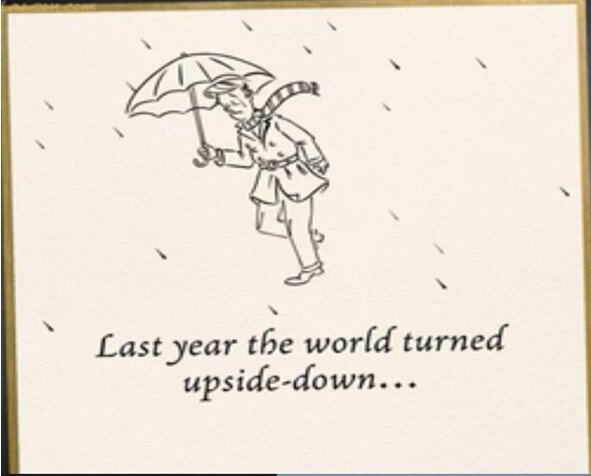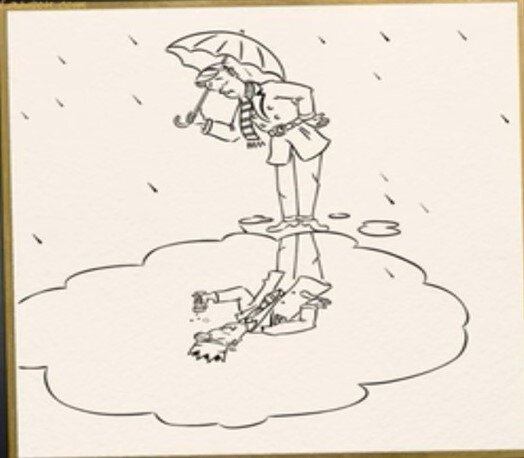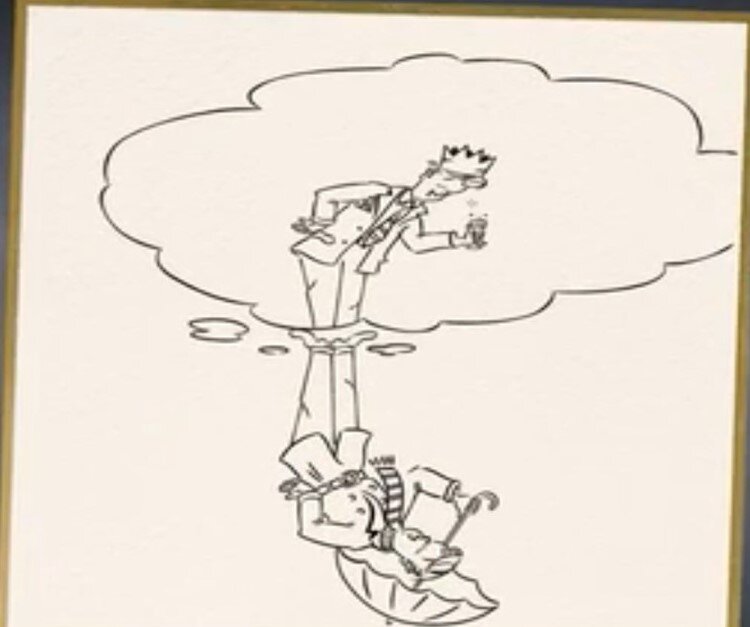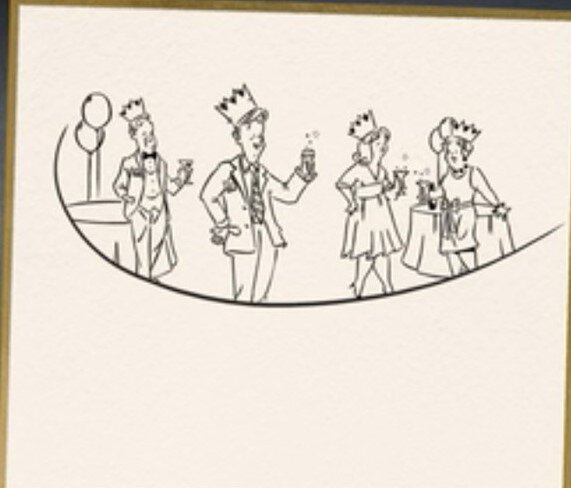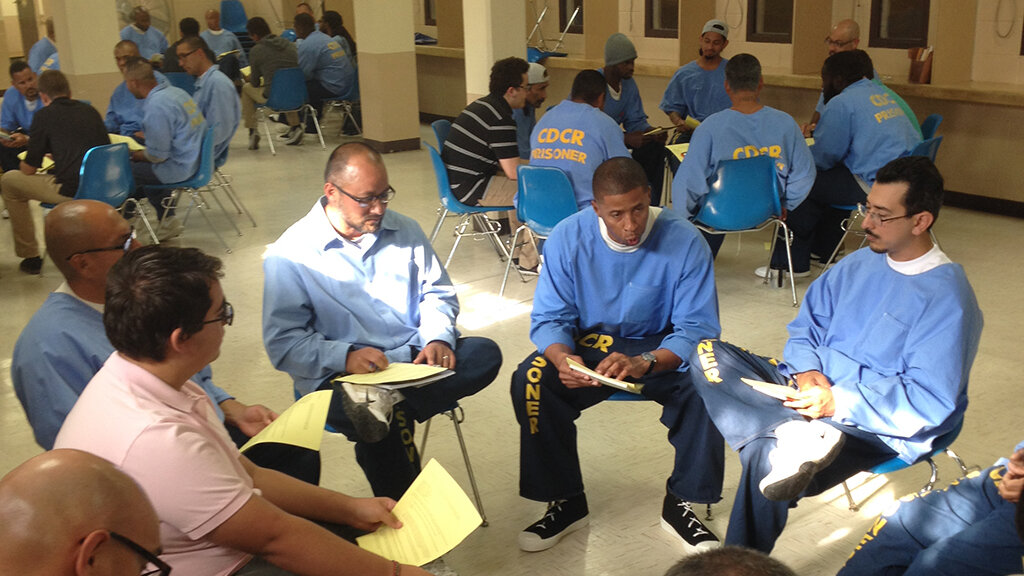Perspective Shifts For Wiser Leadership
A colleague—thank you Joanna—sent me an online Happy New Year card from Jacquie Lawson’s website showing a man, hunkered under an umbrella, walking through driving rain. The scene is bleak, dreary. The caption reads: “Last year the world turned up-side down.” Indeed. The man stops to look at his reflection in a puddle. As he stares, his reflection changes from huddled under the umbrella to standing with a glass raised in celebration, free of the harsh conditions. The card begins to spin until the reflection of huddling under the umbrella is on the ground and the celebratory image is looking down on it. As the change happens, the image of him sheltering from the rain begins to disappear and the festive stance becomes his reality. He is now with a group of people socializing with a joyful spirit.
This sequence sparked thoughts about how a shift in perspective can change our perception, intention, attention, and approach to a situation—and more importantly, how we can visualize and embrace a new outcome—truly living into our leadership capacities. In his last post, Greg said that, “The everlasting importance of good to great leadership remains crystal clear.” From local to national or family to business, the behavior and subsequent impact of our leadership is dependent on the perspectives we hold. How do we achieve wiser perspectives in our leadership?
Making a shift in perspective doesn’t always come easily or quickly. We are accustomed to certain thought patterns and modes of behavior that purportedly uphold our well-being and security. Drawing conclusions based on those patterns can shut the door on new possibilities. Our attachments can stagnate our growth. Perspective shifts require openness, flexibility, and engaging our imagination, so creative solutions can blossom.
Being Better Humans: Individual and Community Leadership
Inmates at Soledad State Prison in California, whose average pay rate is .08/hour, raised $32,000 over a three year period to make it possible for Sy Newson Green to keep attending Palma, a private high school, after his parents were stricken with medical and financial misfortune. The connection between the inmates and Sy came through a book club formed at Palma called “Exercises in Empathy.” The club brought together students, staff members, and parents with approximately 80 inmates, breaking into small groups they called “families.” Heart-warming on many levels, this story resonated on an even deeper plane—students who went in with apprehension, even fear, came out acknowledging those incarcerated as human beings—a perspective shift that would create untold ripple effects—scholarships being one and the notion of family, another.
At any moment, life, either gently or harshly, places a perspective change opportunity in our path. Recognizing it as such is the hard part. Whether through an internal or external prompt, a shift can have untold impact on those you know, and those you don’t.
Michael Sparks, creator of The Underground Kitchen Community First, delivering soup & bread
Michael Sparks and Kate Houck own a successful for-profit business creating dinner parties around the country. The pandemic hit and millions of dollars in contracts were lost. Understandably, they were devastated and unsure what to do. In a HuffPost article, Sparks’ mother told him, “You’re not going to hurt as much as other people. You’re going to be OK. Figure out a way to help people.” Long story short, they stopped focusing on how much money they were losing and started figuring out how many people they could feed. They created a non-profit arm, The Underground Kitchen Community First, to deliver soup and bread to housing projects and expensive neighborhoods alike—to whomever is hungry. Delivering more than 60,000 meals in September, Sparks and Houck realized that it wasn’t only about food insecurity, which they are determined to keep on fighting, it was also about emotional connections and caring. Reflecting on the shift from the for-profit to the non-profit business, Sparks says, “…this whole process has really saved us as humans. It’s made us better humans.”
Nowhere can a perspective change be more profoundly seen than through the actions of our elected leaders. After years of avoidance, equivocation, and capitulation, Mitch McConnell and Lindsay Graham went through what could be noted as monumental shifts of moral reckoning that now find them in opposition to the cacophony of unrelenting lies and bamboozling shenanigans of this nation’s supposed leader. To be sure, what happened in DC last week is a case study in the consequences brought on by the lack of leadership integrity.
From Questions to Revelations
The universe will continue to present opportunities for us to think, be, and do better—we just need to recognize them and be willing to move in that direction. We are a work in progress. 2021 will undoubtedly bring more challenges through which we can grow and mature.
Perspective change is recognizing, tapping into, and, sometimes, taking back our power (note to McConnell and Lindsay) and, as such, engaging our creativity to source something new and better. Let’s re-train ourselves to look deeper than we’re accustomed; to choose something positive; to think of a bigger picture and the best possible results; and to show daily gratitude for the ability and opportunities to do so. Our neural pathways thrive on making new connections, rerouting the well-worn grooves of complacency to transform our individual and collective stories, and thereby our life experiences. As the year brings more challenge and conflict, cloaked in veils of opportunity, we should check our perspective and ask if and how it may need adjusting to enable the best possible outcome.
How do we know when we have stepped into the providence of wiser perspectives? Consider asking some soul-searching questions:
On a personal level: Did I bring a modicum of joy to someone’s day?
On an organizational level: Have I curated a culture of harmony, trust, collaboration, and values?
On a community level: Have I brought a glimmer of hope to anyone in need?
On a national level: How am I helping to fortify the security and well-being of this nation’s people?
Articulate your questions, welcome the perspective-shifting revelations, and lead from a wiser perspective.

